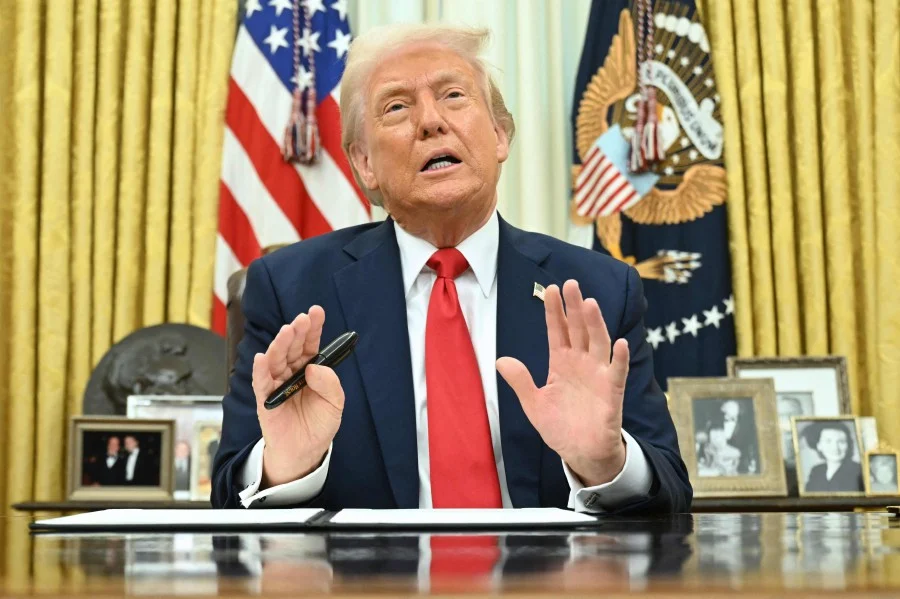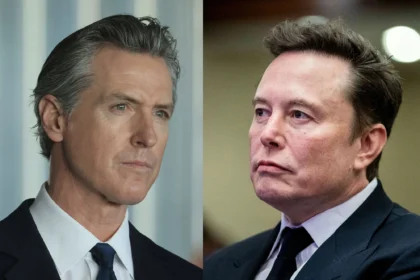In a landmark decision, the US Supreme Court intervened to temporarily halt President Donald Trump’s attempt to deport Venezuelan migrants under a centuries-old wartime law, the 1798 Alien Enemies Act. This emergency ruling prevents the Trump administration from expelling Venezuelan migrants without offering them the opportunity to contest their removal in court, raising significant legal and constitutional concerns.
The controversial law, which was last used to round up Japanese-American citizens during World War II, allows the government to deport individuals it deems a national security threat. Trump’s administration invoked the law last month to send Venezuelan migrants to a notorious prison in El Salvador, where the US government claims members of violent criminal gangs, including MS-13, are detained.
The Legal Battle Over Deportations Under the Alien Enemies Act
The Supreme Court’s decision comes after the Trump administration planned to expel dozens of Venezuelans late Friday, leaving them with minimal legal recourse to challenge their deportation. The court ruled that the government must refrain from removing any of these migrants until further notice.
The ruling has sparked a wider debate about the balance between national security and individual rights, particularly concerning the use of the Alien Enemies Act, which has been invoked only during World War I, World War II, and the War of 1812. In this case, Trump justifies the use of the law by framing Venezuelan migrants as members of terrorist organizations, primarily violent criminal gangs that the US government has labeled as terrorist groups.
Controversy Surrounding Trump’s Deportation Plans
Trump’s administration has faced mounting criticism for its harsh immigration policies, which critics argue undermine constitutional protections. The president’s move to deport Venezuelan migrants without a trial, citing gang affiliations and alleged national security threats, has raised concerns about racial profiling and due process violations.
The American Civil Liberties Union (ACLU), which filed a legal challenge to halt the deportations, applauded the Supreme Court’s decision. ACLU attorney Lee Gelernt stated, “These men were in imminent danger of being sent to a brutal foreign prison without ever having a chance to go to court.” The ACLU’s intervention underscores the growing opposition to Trump’s immigration policies and the potential erosion of individual rights.
Trump’s Tough Stance on Immigration
Trump has long campaigned on a platform of cracking down on illegal immigration, often focusing on the portrayal of migrants as violent criminals. His rhetoric about “rapists” and “murderers” resonated with a significant portion of the electorate concerned about rising crime rates. The administration’s recent actions, including deploying troops to the Mexican border and imposing tariffs on Mexico and Canada for allegedly not doing enough to stop illegal immigration, highlight the president’s commitment to tightening immigration enforcement.
However, the controversy surrounding the deportation of Venezuelans underscores the risks of bypassing judicial oversight. Under the Alien Enemies Act, migrants have been deported without formal charges or a chance to contest their deportations in court, a process that has raised alarms among civil rights groups and legal experts.
The Future of the Alien Enemies Act and Immigration Policy
As legal challenges continue to mount, the Supreme Court’s ruling is likely to have significant implications for future immigration policies. The case raises important questions about the constitutionality of using wartime laws to justify the deportation of individuals without proper due process. The decision could set a precedent for how the government handles national security threats and deportations moving forward.
In addition to the ongoing legal challenges, Trump’s handling of immigration issues continues to divide the nation. Right-wing figures, including social media influencers and Trump allies, have praised the president’s tough stance on immigration. In contrast, civil rights groups and legal experts are raising concerns about the long-term effects of undermining constitutional rights in the name of national security.
As this case progresses, the US Supreme Court’s intervention highlights the delicate balance between security and individual rights, with the future of deportation policies hanging in the balance.




